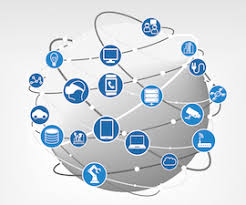
Internet Home Care
Internet Home Care is here and it’s here to stay. Never before has the internet played such a huge part in society. From access to more blogs and videos than we could ever read or watch, to instant messaging with friends and family. There’s no doubt we depend on people like these Mississippi internet providers to supply us with the connection that we need in order to accomplish many of our daily tasks.
How can the Internet help elderly people?
The internet can teach them how to avoid internet scams and connect them better with online directories of social groups for those over 65s. We continue to see how digital innovation can aid the older generations. People with conditions such as dementia and Alzheimer’s can benefit from ways to aid memory and keep them safe.
Technology that learns
The Internet of Things refers to devices which are connected to the Internet. The most common devices to be connected to the internet are phones and computers. However, in the future, the Internet of Things hopes to expand to many of our household items.
For carers, this technological breakthrough can help not only monitor but actually care for elderly relatives and patients. Experts are hoping to release bottles which will dispense the correct dosages at the right times. The users would receive alerts to smart phones. There are plans for chairs which monitor how long someone has been seated. We will also see avatars to guide people through care routines. Other solutions include heating systems which can detect dangerous temperatures to protect older people from illnesses. There are plans for electric metres which alert families to unexpected lulls in activity.
Remembering what’s important
The world can feel uncomfortably unfamiliar to those living with dementia, which may provoke feelings of distress or anger. This is something that the creators of MindMate had to consider when they set about building what they refer to as the “best app available”. Not only does MindMate offer stimulation for the brain with memory exercises and interactive games, but allows users to build their personal stories. This can then be shared with friends and family, or used to simply explore your personal information, which can come in especially handy if a user finds themselves in a hospital or a care home.
There are, of course, many other apps like this, some of which may suit an individual’s needs better.
Increased independence
Sometimes it can be exhausting for carers to be with their patients or relatives 24/7, and yet desperately worry when they are apart from them. New leaps in tracking technology mean that carers are able to stay more connected than ever.
For example, Buddi is a wristband designed to be worn at all times. Buddi is waterproof, tamperproof, lightweight and chargeable whilst worn. The biggest draw of this device is that carers are able to monitor the wearer’s location, whether that means making sure that they stay in safe areas the carer has approved, or finding them if they should become confused and lost outside the home. It also has an emergency push button and an automatic fall alert.
This allows both the carer and patient or relative to be apart from each other without the same level of worry. It also allows people with memory-related conditions to take more control of their lives. They have the reassurance that Buddi can alert loved ones and carers if they need assistance.
Of course, the internet could never replace the need for personal, hands-on care, but rather by pairing these two, we might better understand the nature of these diseases and the best ways to deliver top-quality care for those we love the most.

